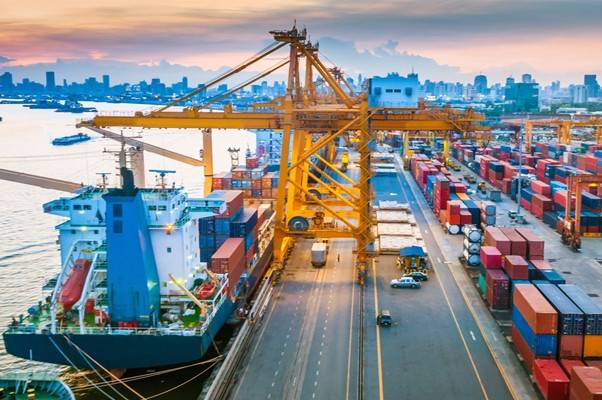Global shipping giant Maersk has expressed interest in developing the strategic East Container Terminal (ECT) at the Colombo Port in close partnership with the Sri Lanka Ports Authority (SLPA).
Although the Port of Colombo is a rising star for the South Asian trans-shipment business, it urgently needs enhanced capacity. Realising the urgency, Government signed a MoU with the Government of Japan and India to co-develop the ECT project.
ECT has been in the news because the 2019 deal involving the three governments had not materialised so far. And in the midst of this, there is market speculation that an Indian operator, the Adani Group, aspires to take over the ECT project.
The Maersk Group owns the world’s largest container shipping line, holding around 20% of global market share. It operates over 70 container ports around the world with a vision to “lift global trade”. Maersk Group has had long-term interests in the Colombo Port – already earning the distinction of being the largest foreign investor that helped to develop and grow Colombo’s South Asia Gateway Terminal (SAGT) together with Sri Lankan partner, John Keells Holdings (JKH).
Further demonstrating its suitability for the ECT project, Maersk has single-handedly supported Malaysia to develop its trans-shipment port PTP near Singapore, which is now handling around eight million containers per year.
In Oman, Maersk is the commercial and operational partner developing the Salalah container port, which has over four million containers per year now.
Given the huge competitive pressure for trans-shipment business and Maersk’s track record as a politically independent partner in the region, the Government is evaluating Maersk as part of the solution to the challenge to fast-track the ECT project.
Colombo Port more than doubled its container throughput in 2019, handling 7.3 million TEU containers in the year, however, its future growth remains constrained by available capacity. This is where the ECT project can make a world of a difference. With over 2.5 million TEU capacity, the ECT project is expected to address the capacity shortage and bring premium deep-water capacity to serve the largest container vessels in the trade.
One of the tenets of the project is to maximise Sri Lanka’s national interest and to ensure ownership of such a premium local asset, with Sri Lankan private investors and SLPA playing an active role in the project. The Hambantota port is a clear example that Sri Lanka can build a world-class port.
Partnering with Maersk for ECT project it said would further ensure strong commercial and operational support to the project for the future success of the Colombo Port.
Colombo is competing with regional titans such as the Port of Singapore (37 million container throughput per year) and Dubai (15 million container throughput per year) for the South Asia trans-shipment business.
Considering this fierce competition, the ECT project needs a seasoned operator like Maersk to recreate its success with similar projects elsewhere according to the global giant.
(FT)

